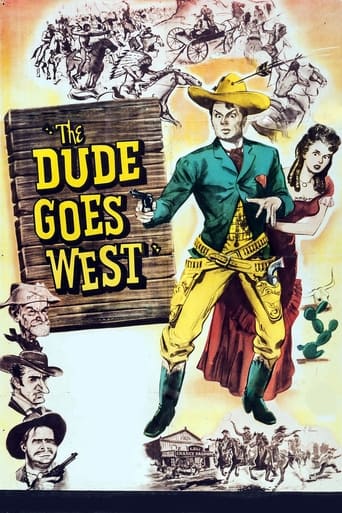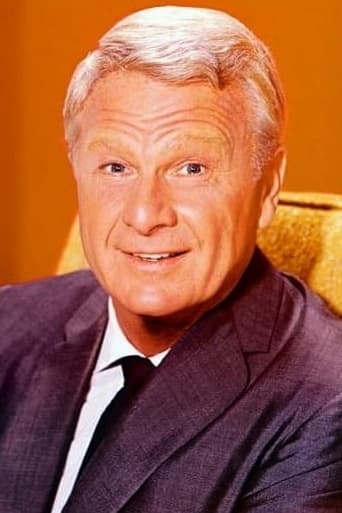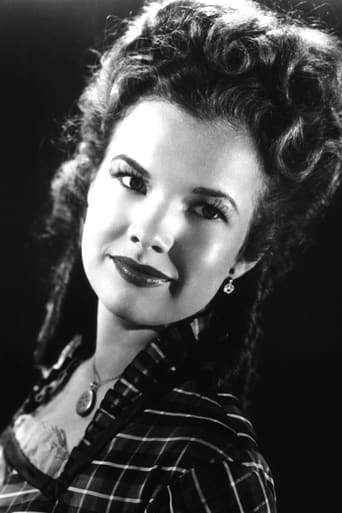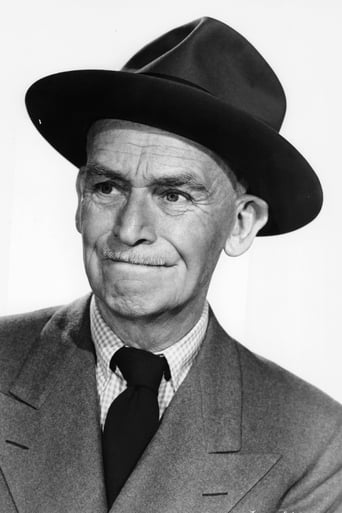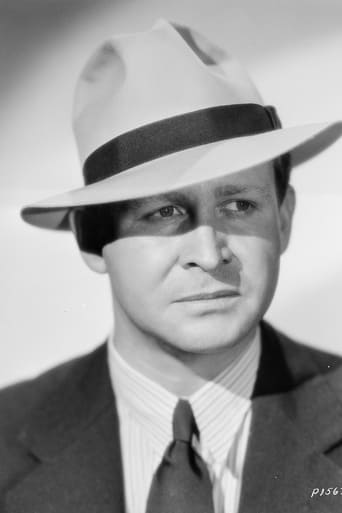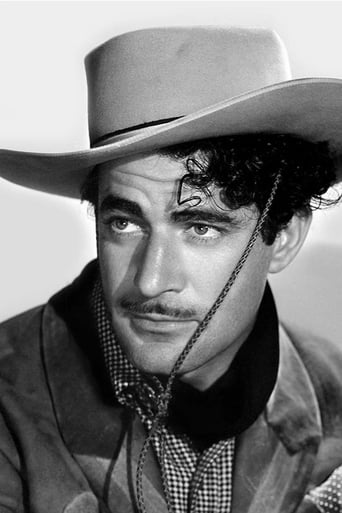Titreenp
SERIOUSLY. This is what the crap Hollywood still puts out?
Comwayon
A Disappointing Continuation
Breakinger
A Brilliant Conflict
Staci Frederick
Blistering performances.
JohnHowardReid
A King Bros. Production. Locations filmed in California's High Sierras.Copyright 30 May 1948 by Allied Artists Productions, Inc. No New York opening. U.S. release: 30 May 1948. U.K. release through Pathé: 9 May 1949 (sic). Never theatrically released in Australia. 87 minutes.SYNOPSIS: Mild-mannered gunsmith moves from the Bowery to Arsenic City, Nevada, to cash in on the outlaw boom. Time: early 1870's.COMMENT: A delightful western satire which proves that even a normally pedestrian director like Kurt Neumann can occasionally excel. Of course he was handed a very entertaining script to begin with; and then had the services of a first-rate cast and the run of a large budget. The King Brothers unit aimed for both economy and quality. No doubt they persuaded some of the major studios to allow them to use standing sets that were otherwise idle (which explains the lack of an art director credit). In any case there is no sign of penny-pinching on the screen. Neumann's direction is relaxed, allowing such inventive touches in the script as the speech over the sign language (which is highly effective) and the delightful soliloquies to shine through. Another admirable feature of the screenplay is its excellent characterization which gives a splendid array of supporting players meaty opportunities that stay amusingly in mind long after even Karl Struss' skilled photography is forgotten. The plot itself is neatly constructed and allows Eddie Albert to exploit a side of his talent rarely utilized on the screen - his guitar-playing and singing. His three delightful songs alone make The Dude worth seeing.The Sales (Richard and Mary) were to tap this vein of western humor again in A Ticket to Tomahawk.
SimonJack
Most of us have seen Western movies in which an Eastern-raised guy heads West. To the cowpokes and people of the West, he's a dude (aka, greenhorn, tinhorn, tenderfoot). The tinhorn is obviously an underdog. At some point, he'll be the butt of a joke, an easy prey for gunplay, or face some other shameful put down. Well, this is one such movie in which the dude comes out on top, in almost all instances. It's almost the reverse of the standard fare Hollywood Western"The Dude Goes West" is a very fun and entertaining comedy Western. Eddie Albert is the dude, Daniel Bone, who travels from New England to Arsenic City, somewhere in the Wild West. He plans to set up shop where a gunsmith is still needed. And, he knows his guns and how to shoot them. He also has more knowledge about the West, Indians, survival, etc. than most cowboys. He learned it all from reading. Daniel is a good guy who winds up in a role that any number of original Western stars have played. John Wayne, Roy Rogers, Randolph Scott, Gene Autrey, and any number of other frequent cowboys in the movies have rescued a damsel in distress. Much of the time, it's been over a mine, too. But, the way Daniel does it in this movie is quite different, and very funny. His good nature and trust of his fellow man causes him some troubles, but these add to the humor. All of the cast are very good. Gale Storm plays Liza Crockett, James Gleason is Sam Briggs, Gilbert Roland is the Pecos Kid, Barton MacLane is Texas Jack Barton, and Binnie Barnes is Kiki Kelly. Binnie plays a tough hombre in this film. One other thing different about this film – Daniel doesn't become sheriff or marshal. This is a nice, entertaining yarn and fun way to spend an evening.
bkoganbing
Eddie Albert is in the title role of The Dude Goes West and it's a role that we've seen him in before, the mild mannered guy who somehow manages to triumph. This was years before his Oscar nominated roles in Roman Holiday and The Heartbreak Kid. And also before his incredible dramatic parts in Attack and Captain Newman, MD. Albert was always a favorite of mine, he was a player with incredible casting range who never got his due recognition.He's certainly in a trade that the west needs, he's a gunsmith who to make sure he did a proper job learned marksmanship. That's something some villains learned to regret.On the way west he runs into Gale Storm who is going west to claim a legacy, a gold mine her late father left her. She's got a map to the place for which a claim was never filed and villains Gilbert Roland and Binnie Barnes are out to steal by hook or crook. There's a third villain in the film, perennial villain Barton MacLane. But he's not so bad here as you'll see.The whole film is a great commercial for 'reading is essential' because tenderfoot Albert learns a great deal about the west from books and the knowledge he has gets him out of some tight situations. The Dude Goes West is a funny, but gentle comedy with Albert comfortable in a role he played a lot in his early film years. The rest of the cast gives him fine support and this is a most enjoyable movie.
philosophymom
The year is 1880-something, and gunsmith Daniel Bone (just one "o") decides to abandon tame New York for a part of the country where a person in his line of work can expect to be kept a little busier. The thoroughly decent Daniel might be a tenderfoot, but between his professional skill with firearms and his great reader's head full of knowledge, he turns out to be more than a match for the desperados he meets en route to-- and in-- lawless Arsenic City, Nevada. Our boy doesn't do badly with the local Native tribe, either. Now if he could just get past the defenses of Miss Liza, an over-cautious innocent who's come West to find her late father's lost gold mine...Eddie Albert is quite charming as the titular dude in this slight but enjoyable, gently comic Western. In fact, there's charm to spare here: James Gleason endears as the grizzled prospector-sidekick, Barton McLean (later Gereral Peterson in "I Dream of Jeannie") wins one over as the most sympathetic of a host of black-hatted bandits, and Gale Storm is refreshingly non-cloying as your standard-issue spunky, naive heroine. Things never descend to the cartoonish, allowing Albert to get through a couple of on-the-trail ballads (which he croons in a pleasant tenor while strumming a guitar), a dramatic display of "Indian sign language," and even an idealistic law-and-order speech to an angry mob with his dignity fully intact. Indeed, one's inspired to wonder why the future small-screen star never quite scored as a cinematic leading man-- he certainly seems to have had the potential.Available on DVD-- think I'll watch it again.
